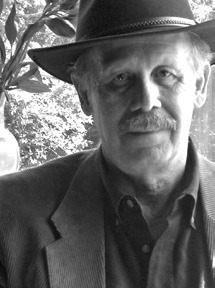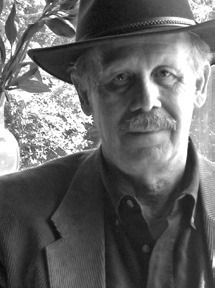THISWEEK IN TEXAS HISTORY
Col. Billy Mitchell departed San Antonio on Sep. 21, 1925, never to return in uniform to the flight training center. The outspoken advocate of air power realized the odds were against him but relished the opportunity to butt heads with the brass.
As commander of American fliers in the First World War, Mitchell became the chief champion of airborne tactics. To prove his controversial point that the winged weapon had rendered the battleship obsolete, he sank three captured German vessels in a dramatic 1921 demonstration.
Nevertheless, stubborn superiors dismissed the airplane as a novelty with minimal combat potential and Mitchell as a dangerous crackpot.
He was punished for his persistence in early 1925 with the loss of his number-two post in the Army Air Service, demotion from brigadier general to colonel and exile to the Lone Star State.
Abe Yeager, military reporter for the San Antonio Light, was already well-acquainted with both sides of the heated debate.
Unhappy aviators at Kelly Field and Brooks Field regularly cried on the newspaperman’s shoulder, and ground officers at Fort Sam Houston aggressively argued their case.
The young pilots complained that the seniority-based promotion system kept them at the bottom of the Army pecking order. With increases in rank going to older foot soldiers, the result was reinforcement of the deeply ingrained prejudice against the fledgling air force.
The depth of this bias was revealed by an artillery colonel in a frank interview with Yeager. He called the cloud hoppers “nothing more than air chauffeurs” and added with unmistakable contempt, “They know nothing of military tactics and are incapable of exercising command. Their chief ambition is to fly around the country and have a good time.”
Mitchell’s critics figured his demotion and transfer would turn the fiery maverick into a docile team player, but the move had the opposite effect. During his short stay in San Antonio, he wrote a series of articles for major magazine and finished a book-length presentation of his views.
On Sep. 1, 1925, the day Winged Defense was published, Mitchell summoned reporter Yeager to his office.
Speaking for the record and with characteristic intensity, he stated, “The truth about the United States Air Service is to be suppressed no longer. The truth of our deplorable situation is going to be put before the American people come what may.”
Yeager asked whether the manuscript was cleared by military censors. Mitchell readily admitted that he had not bothered to obtain their blessing.
“If the War Department wants to start something, so much the better,” stressed the combative colonel. “Then we can get the case before Congress, and we will have a chance to remedy this unfortunate situation.”
A Navy flying boat disappeared over the Pacific the very next day, and less than 24 hours later the dirigible Shenandoah went down in a thunderstorm.
Mitchell lost several close friends in the twin tragedies, which seemed to set him on a collision course with the bigwigs at the War Department.
When Mitchell asked to see him early Saturday morning, Sep. 5, Yeager knew something was up. Handing the puzzled journalist the final draft of a lengthy article, he solemnly said, “I expect to be under arrest by Monday, but I believe it would be the best thing.
It would bring the issue of national defense to a head.”
The bombshell broadside did exactly that. Afternoon editions throughout the country carried the explosive story, which blew the lid off the air-power debate.
“These accidents are the direct result of the incompetency, criminal negligence and almost treasonable administration of the national defense by the Navy and War Departments.” Mitchell charged in bold print.
The surprising silence of his superiors only made him madder. On the following Wednesday, he issued a defiant challenge. “If the War Department does not like the statement I made, let them take any disciplinary action they may see fit.”
Ten days later, Col.
Mitchell was relieved of duty and summoned to Washington to appear before a special commission created by President Coolidge. His tough, uncompromising testimony sealed his fate.
The court-martial of Billy Mitchell concluded on Dec. 17, 1925. He was convicted of numerous breaches of military discipline and suspended from “rank, command and duty” for five years.
Rather than accept the sentence he resigned to continue his one-man crusade in civilian clothes until his death in 1936.
In 1957 Abe Yeager reflected on the biggest story he every covered.
“I have often wondered whether the court finding that brought an end to his career did not in some measure condemn the world to the costly fighting of the war that followed.
“Would Hitler have dared to attack defenseless nations had this country developed a powerful air force headed by such a brilliant commander as Billy Mitchell?” Bartee Haile welcomes your comments, questions and suggestions at Bartee Haile, P.O. Box 130011, Spring, TX 77393.








